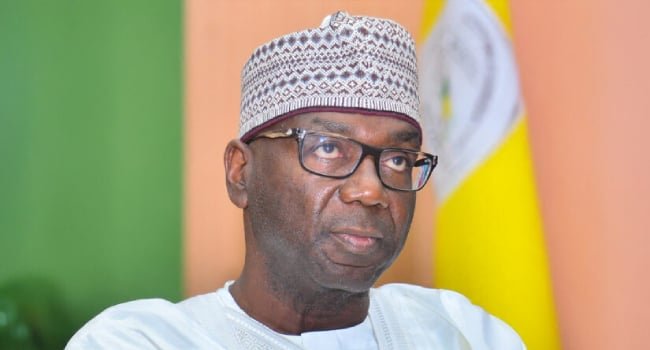The United Kingdom’s upcoming immigration rule change is a breakthrough for thousands of Nigerian students studying across British universities. From 25 November 2025, Nigerian citizens on a Student visa can apply directly for the Innovator Founder visa without leaving the UK — a historic shift that finally removes the long-standing barriers to entrepreneurship for international students.
This guide breaks down everything a Nigerian student needs to know — requirements, endorsement, costs, risks, opportunities, step-by-step processes, and expert-level tips to boost approval chances.
1. What Exactly Is Changing?
Starting 25 November 2025:
- Nigerian students will no longer need to travel back to Nigeria to apply for the Innovator Founder visa.
- Applications can be made entirely inside the UK immediately after completing your course.
- PhD students qualify after 24 months of study.
- With an endorsement in hand, you can even start self-employment while your application is being processed.
Before now, students needed to leave the UK or use the discontinued Start-up visa route, which caused interruptions and financial strain.
This new system is designed to keep entrepreneurial talent in the UK, especially from countries like Nigeria where innovation, tech creativity, and startup culture are growing fast.
2. Why This Change Is a Big Win for Nigerian Students
No more travel costs
Traveling back to Nigeria to submit a visa application costs hundreds of thousands of naira in flights, transport, accommodation, documentation, and lost time. All that is now gone.
You can build your company immediately
Once endorsed, you can:
- register a company,
- market your product,
- seek investors,
- sign clients,
- earn revenue.
This is a major improvement for Nigerians in tech, agriculture, fintech, fashion, health innovation, and the creative industry.
Straight path to settlement
After three years on the Innovator Founder visa:
- you may qualify for Indefinite Leave to Remain (ILR),
- opening a route to long-term residence, stability, and future citizenship.
This is one of the fastest settlement routes in the UK immigration system.
3. Requirements for Nigerian Students
To switch from Student visa to Innovator Founder visa inside the UK, you must:
1. Have completed your course
- Undergraduates, Master’s, Postgraduates — all qualify once the course is fully completed.
2. Or be a PhD student with 24 months of study
3. Have a business idea that is:
- Innovative
- Viable
- Scalable
4. Obtain endorsement from a Home Office–approved body
5. Meet the English requirement
Most Nigerian students already meet this through prior academic qualifications.
6. Have maintenance funds
You must show personal savings (usually around £1,270).
4. Understanding Endorsement — The Heart of the Process
Endorsement is the most important part of the Innovator Founder visa.
Your business idea must convince an approved endorsing body that:
- it is new,
- it solves a real problem,
- it has market potential,
- it can grow beyond small/solo operations,
- you are capable of running the business.
Endorsing bodies may include:
- university-linked accelerators
- innovation hubs
- government-approved startup scouts
- private entrepreneurship evaluators
- tech-focused endorsers for AI, fintech, health, etc.
5. What Nigerian Students Must Prepare to Secure Endorsement
Endorsing bodies typically expect:
1. A strong business plan
- Market analysis
- Competitor landscape
- Revenue model
- Target customers
- Growth strategy
- Financial forecasts
- Innovation explanation
2. A pitch deck
Clear slides describing opportunity, innovation, and scalability.
3. Evidence of work already done
This can include:
- prototypes
- user testing results
- MVP version of software
- social media traction
- market feedback
- pilot activities
- designs or app mock-ups
4. Proof you are the founder or key innovator
6. Step-by-Step Guide for Nigerian Students
STEP 1 — Finalise your business idea
It must be innovative. Simple restaurants, mini-importation, POS shops, hair salons, or resale businesses will be rejected.
STEP 2 — Build your business plan and pitch deck
This is the most important document for endorsement.
STEP 3 — Apply to an endorsing body
Expect interviews or requests for revisions.
STEP 4 — Receive your endorsement letter
STEP 5 — Apply for the Innovator Founder Visa inside the UK
STEP 6 — Begin your business activities (allowed once endorsed)
STEP 7 — Attend monitoring checkpoints
At 12 months and 24 months, endorsers assess your progress.
STEP 8 — Apply for ILR after 3 years
If your business meets growth requirements, you can settle in the UK.
7. What Types of Businesses Nigerian Students Can Apply With
Strong Examples
- AI-powered legal solutions
- Fintech platforms
- Agricultural automation
- Health-tech diagnostics
- Renewable energy devices
- Edtech learning apps
- Fashion-tech innovation
- Software-as-a-service (SaaS) tools
- Creative digital ecosystems
- Green manufacturing technology
Weak Examples (Likely to Be Rejected)
- Food shops
- Retail stores
- Traditional fashion boutiques
- Basic logistics services
- Forex trading
- Cryptocurrency trading
- Hair salons
- Mini-import businesses
The visa is NOT for regular businesses — it is for innovation-driven, scalable ventures.
8. Common Mistakes Nigerian Students Should Avoid
Mistake 1: Writing a generic business idea
Endorsers reject any idea that looks like a common, non-innovative business.
Mistake 2: Starting business activities before endorsement
This violates Student visa conditions.
Mistake 3: Not calculating financial needs
Starting a business in the UK requires proper budgeting.
Mistake 4: Using plagiarism for business plans
Endorsers run originality checks — similarities lead to rejection.
Mistake 5: Waiting until graduation
Start building your idea 6–12 months before course completion.
9. Expected Costs for Nigerian Students
While fees may vary slightly, most applicants should expect:
- Innovator Founder visa fee
- Immigration health surcharge
- Endorsement fee
- Business formation costs
- Legal or advisory services (optional)
- Startup capital for the business
Total initial expenses may run into several thousand pounds, depending on the business idea and support required.
10. How to Boost Your Approval Chances (Advanced Tips)
Tip 1: Link your idea to your field of study
Endorsers like continuity — e.g., engineering students applying with a tech hardware solution.
Tip 2: Validate your idea early
Show evidence of:
- user interviews
- competitor analysis
- prototype testing
- university competitions
- hackathon participation
Tip 3: Build an online presence for the idea
A simple website or prototype page helps.
Tip 4: Get mentorship
University incubators often offer free advisory sessions.
Tip 5: Prepare for interviews
Endorsers will challenge your understanding of:
- finances
- customer acquisition
- market size
- competitive edge
- operational costs
11. How This Pathway Can Change the Future for Nigerian Graduates
Many Nigerian students come to the UK with:
- tech skills
- entrepreneurial drive
- unique problem-solving insights
This new visa route lets them:
- start businesses earlier
- access UK investors
- hire staff
- collaborate with global partners
- eventually settle and expand their companies across continents
It is a major shift that positions Nigerian students as key players in the UK’s future innovation economy.
12. Final Advice for Nigerian Students Preparing for November 2025
The key to success is early preparation. Do not wait until graduation. Begin now:
- Build your business concept.
- Start drafting your plan.
- Research endorsing bodies.
- Join your university’s entrepreneurship hub.
- Network with mentors, developers, and potential partners.
For those who prepare well, this policy will be a doorway to global entrepreneurship, long-term residence, and business growth on an international scale.














